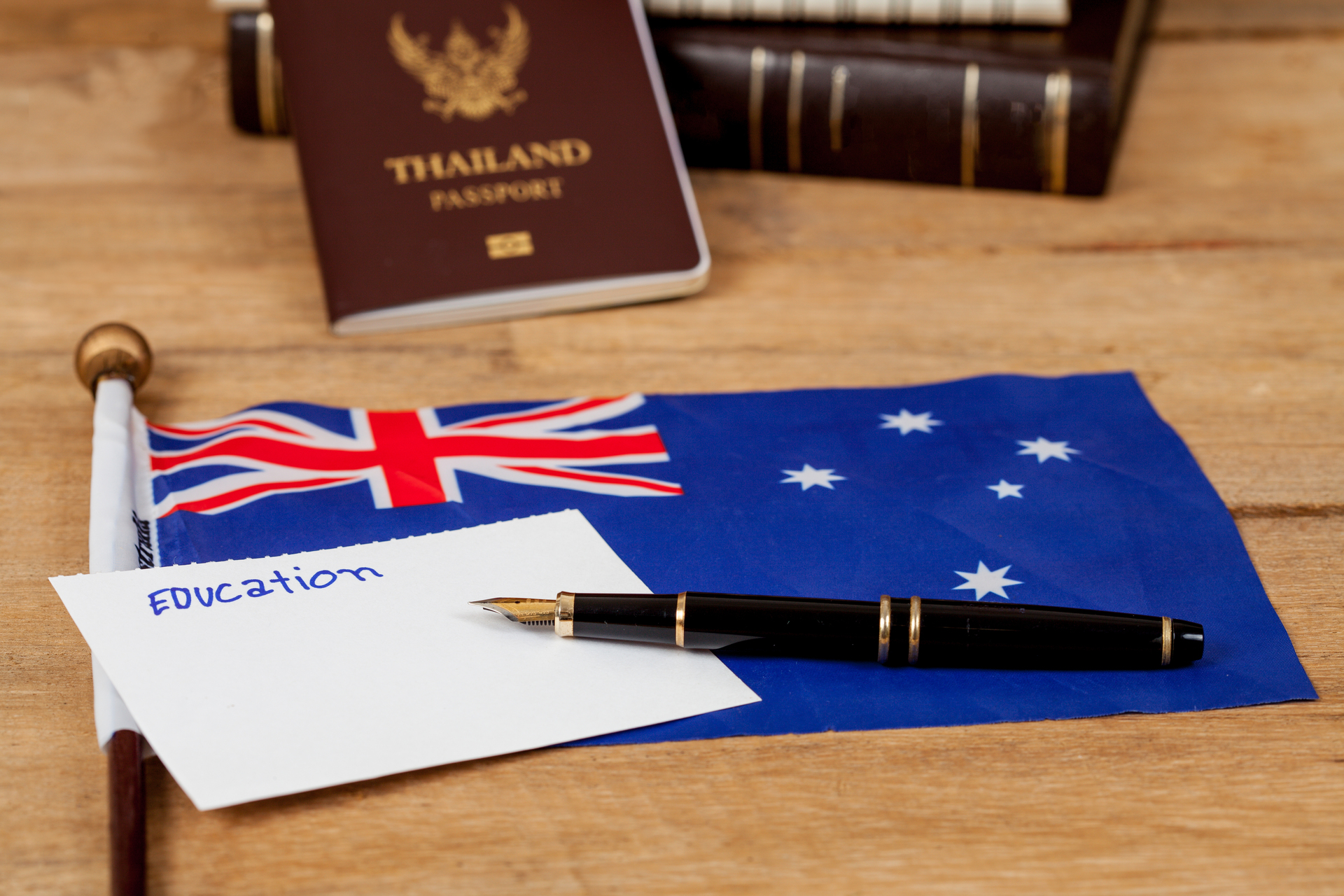- e-mail us
- We are Open
Study in Australia
- Home
- Study in Australia

Studying in Australia involves several stages and specific requirements for obtaining a student visa. Additionally, there are pathways to transition from a student visa to a work visa and ultimately to permanent residency. Australia’s exceptional education system attracts numerous applicants, who often have questions such as: what documents are needed at various stages of the application process? What steps can increase the likelihood of securing a student visa? Many other inquiries may arise for prospective students. To address these concerns, the experts at Talav Company have thoroughly explored all essential aspects of studying in Australia, including selecting a university and the visa conversion process. Feel free to contact our experts for a complimentary consultation.
Topics covered in this article:
– Education Requirements in Australia
– School Education in Australia
– College Education in Australia
– Bachelor Education in Australia
– Postgraduate Education in Australia
– Doctoral Education in Australia
– Microbiology Education in Australia
– Scholarships for Studying in Australia
– Education Cost in Australia
– Student Employment in Australia
– Dependent Visas for Studying in Australia
– Australian Universities
– Admission Process for Education in Australia
– Required Documents to Gain Australian Student Visa
– Career Opportunities After Studying in Australia
– Methods of Post-Study Citizenship in Australia
– Commonly Asked Questions
– Last words about Studying in Australia

Education Requirements in Australia
Migrating to Australia is highly popular among applicants, with many individuals moving to this beautiful country annually. With a diverse array of educational methods similar to those used in universities in the USA and the UK, Australia attracts a large number of students each year. Additionally, Australia is favored for its excellent citizenship services, pleasant climate, and ample job opportunities across various fields and disciplines. The conditions for migrating to Australia and the regulations for acquiring residency are intriguing and significant topics for students, covered both in this article and on the official Australian government website.
School Education in Australia
Primary and secondary education in Australia is offered at different levels for individuals under 18. Students commence their education in elementary school at the age of 7, completing this stage by the age of 12 or 13, before advancing to high school. In high school, students study until they are 17 or 18 before entering universities. College courses can be incorporated into the high school curriculum, with students typically attending Australian colleges from ages 15 to 18.
Australian schools are categorized into private and public institutions. Public schools are generally available to children whose parents have obtained Australian residency. Many international students prefer boarding private schools, allowing them to pursue their education without their parents’ presence, although parents may accompany their children if desired.
Currently, Australia grants a guardian visa to the parents and under-18 siblings of students attending private schools. This visa is known as the Guardian Visa.
College Education in Australia
Australia provides a unique opportunity for students, allowing those who have completed the 9th grade to easily enter renowned Australian colleges. It is important to note that these students can be accompanied by their parents until they turn 18. Australian colleges strive to cultivate knowledgeable and efficient professionals by offering top-notch educational services, along with recreational and sports facilities. These colleges address all aspects of student education, identifying talents in areas such as art, music, and academic preferences, enabling students to make informed decisions regarding their careers, artistic pursuits, and education.
Australian colleges are divided into private and public institutions. Private colleges typically offer the best educational services. The current cost of education in Australian colleges ranges from 18,000 to 25,000 Australian dollars annually, with living expenses for students estimated between 15,000 to 18,000 Australian dollars annually.
The age range for studying in these colleges is between 15 to 18, and students intending to enter universities after earning their diploma can take a foundation course. This course allows students to easily transition to universities while improving their English and other subjects.
Bachelor Education in Australia
Renowned Australian universities include the Group of Eight (Go8) universities, the University of Sydney, and the University of Western Australia (ranked 89th globally). For undergraduate education, applicants are advised to complete a foundation course in Australian colleges before entering university. Applicants need to provide a 12-year education diploma and academic transcripts to apply for a bachelor’s degree. Additionally, an IELTS score of 6 is mandatory for university admission in Australia, and it is advisable to have a minimum average score above 15.
If applicants do not meet the required average score, they must take foundation courses, which do not require language certificates. The cost of undergraduate education varies depending on the university and the field of study but averages between 20,000 to 30,000 Australian dollars.
Postgraduate Education in Australia
Australia offers admission to various majors for master’s degree programs, making it an excellent destination for engineers and other professionals. Young individuals seeking education and employment can secure their future careers by selecting Australian universities. Admission requirements for a master’s degree include graduation from reputable universities, high academic scores, and strong language proficiency. Carefully selecting a master’s thesis topic can pave the way for a PhD. Students are allowed to work 20 hours per week and full-time during holidays to cover some of their expenses.
Graduates from Australian universities can easily enter the job market, and Australian universities offer numerous scholarships for PhD students. Australia allocates a significant research budget to its universities, providing an optimal environment for students to continue their education in a scientifically enriched setting.
To gain admission to top Australian universities, prospective students should meet conditions such as an IELTS score of 6.5 or 7, international publications, and high academic scores. Consulting experts can be very beneficial in this process.
Doctoral Education in Australia
Pursuing a PhD in Australia without an IELTS score of 7 is extremely challenging, if not impossible. Additionally, applicants must provide academic transcripts from their master’s and bachelor’s degrees, along with translated copies of their original degree certificates. To gain admission to a PhD program, students must attract the attention of a professor or supervisor with an outstanding CV. Obtaining an educational scholarship is usually possible at the PhD level, as Australia invests a substantial budget in research. If students secure a fully-funded scholarship, they can cover all their educational and living expenses in Australia. Key factors for PhD admission include:
- An IELTS score of 7 or higher
- ISI scientific publications
- Support from a supervisor
The cost of a PhD in Australia ranges from 20,000 to 30,000 Australian dollars annually, with students allowed to work part-time for 30 hours a week.
Microbiology Education in Australia
Microbiology studies encompass the field of microscopic organisms such as bacteria, fungi, viruses, yeasts, and algae. Graduates in microbiology can work as laboratory technicians, scientific writers, and biomedical experts. Top universities such as Melbourne, Queensland, Sydney, and La Trobe offer this major, and students can apply for admission. Pursuing a bachelor’s degree in microbiology at La Trobe University takes 3 years, with an annual tuition fee of 22,000 Australian dollars. Applicants need an IELTS score of 6 or a TOEFL score of 64.
Scholarships for Studying in Australia
The Australian education system is primarily private, requiring tuition fees. Individuals born to Australian citizens may receive free education in certain regions or obtain scholarships to cover part of their expenses. To study in Australia for free, international students need to secure scholarships. Most scholarships are granted to PhD students and have specific requirements. The necessary documents for obtaining a scholarship and thus studying in Australia for free include:
- An IELTS score of 7 or higher
- Two recommendation letters from professors at the previous university
- A compelling Statement of Purpose (SOP) detailing personal circumstances
- An excellent CV
Education Cost in Australia
The cost of living and studying in Australia varies depending on the level of education and the university. There is no free education program for international students, and all must pay tuition fees. Free education is available only to permanent residents. Costs differ based on lifestyle, city, university, and field of study, but the following average prices can be provided:
Education grade | Cost in Australian dollar |
Elementary school | 7,800 to 30,000 |
High school | 4,000 to 22,000 |
College | 10,000 to 20,000 |
Bachelor degree | 10,000 to 25,000 |
Master degree | 15,000 to 30,000 |
PhD | 14,000 to 35,000 |
Student Employment in Australia
As Australia’s educational system does not provide free education, many applicants seek to offset their educational expenses through scholarships and part-time jobs. Fortunately, students in Australia are permitted to work part-time while studying, gaining valuable work experience and integrating into the Australian community. Students can work up to 20 hours per week during the academic term and full-time during holidays and weekends. Earnings vary depending on the job and city, but students can typically cover up to 60 percent of their expenses.
Dependent Visas for Studying in Australia
Many individuals wish to have their families with them while studying in Australia. To facilitate this, family members need to obtain a companion visa, which has different regulations for those under and over 18 years old. Students under 18 years old can request a guardian visa for one of their parents, while the other parent, sibling, or sister can apply for a companion visa shortly after. Students over 18 can request a companion visa for their spouse and children under 18. Notably, companions can work in Australia if they possess a language certificate and a strong CV.
Australian Universities
Australian universities are among the top-ranked institutions globally. Eight Australian universities are included in the top 100 world universities, and Australia ranks 9th worldwide in university rankings. Additionally, Australian universities are among the top 50 globally in terms of education quality.
To study at Australian universities, you must obtain admission. The following table introduces some of the top Australian universities. For more detailed information, you can refer to their websites.
|
National University of Australia |
|
|
University of Canberra |
|
|
Catholic University of Australia |
|
|
University of Charles Sturt |
|
|
Macquarie University |
|
|
Southeast university |
|
|
University of Technology Sydney |
|
|
University of Wollongong |
|
|
Griffith University |
Admission Process for Education in Australia
To study in Australia, it is necessary to provide documents in two stages. First, the individual must obtain educational admission from an Australian university or school, then proceed to acquire a student visa, education permit, and residency permit. Each stage requires specific documents. Conditions and documents required for obtaining educational admission in Australia:
- Submission of original and translated transcripts for 12 years of education
- Submission of original and translated previous degree
- Provision of a valid language certificate
- Submission of original identification documents and their translation
- Provision of passport
- Provision of 4 photographs
- Submission of work experience and its translation
Required Documents to Gain Australian Student Visa
To study in Australia, previous degree documents are required, but there is no need to provide a language certificate initially. After obtaining admission, a student visa must be acquired to enter, study, and reside in Australia. Requirements for obtaining an Australian student visa are as follows:
- Translation of identification documents
- Provision of offer letter
- Provision of valid language certificate
- Submission of work experience and its translation
- Provision of ECOE (Electronic Confirmation of Enrollment)
- Submission of SOP (Statement of Purpose)
- Translation of marriage certificate
- Completion of related forms
Career Opportunities After Studying in Australia
Typically, students wish to stay and work in Australia after graduation. The Australian government allows graduates to remain in the country for 18 months to seek employment. Since graduates from Australian universities are proficient in English, their chances of finding a job are high. It is important to note that during this 18-month period, applicants are allowed to work full-time. However, to secure a post-study job, the job must be related to their major and meet defined standards.

Methods of Post-Study Citizenship in Australia
Some believe they will acquire permanent residency immediately after graduating from an Australian university, but this is not the case. Students wishing to obtain residency after graduation must pursue one of the immigration plans. In this section, experts at Talav Company have examined the rules for permanent residency and citizenship in Australia. One of the most common ways to acquire residency after graduation is through employment and obtaining a working residency in Australia. Graduates can apply for a type 489 Australian visa, allowing them to reside in Australia for 18 months while seeking employment. This visa is not extendable, so the individual must find a related job and convert their visa to an Australian work visa.
Upon acquiring a work visa, individuals can apply for permanent residency (PR) in Australia after four years. After two years of permanent residency, they can request citizenship and a passport.
Commonly Asked Questions
✅ Is studying in Australia free?
No, tuition fees must be paid for studying at Australian universities unless a scholarship is obtained.
✅ Is it possible to study in Australia without a language certificate?
To maximize your chances of obtaining a visa, it is advisable to provide a language certificate.
✅ Can scholarships be obtained from Australian universities?
Scholarships are often awarded to PhD students and require an outstanding CV, including a high-scoring language certificate, published articles in reputable journals, a high GPA, etc.
✅ Can you work in Australia after graduation?
After graduation, you are given an opportunity to seek employment. If you find a job, you can convert your visa to a work visa.
Last words about Studying in Australia
Due to its popularity, studying in Australia is covered in this article. Individuals aspiring to gain admission to reputable and top universities in Australia can try their luck by meeting the requirements mentioned in this article. Consulting with experts can greatly assist you in this process. To complete your information about immigration to Australia, studying in Australia, and obtaining admission from Australian universities, you can refer to other articles on this website or speak with our expert on the phone for a free consultation.

for immigration & Travel
Useful Links
Warning! The information provided on this website is based on research conducted by non-legal professionals, and Talav Company does not assume legal responsibility for the accuracy or reliability of this content.
We highly recommend that you independently verify this information and consult with a qualified local attorney to ensure it is applicable to your specific situation.

